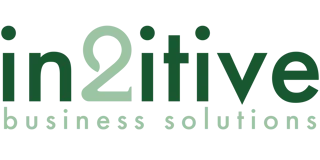Take a moment and imagine this: you’re taking a trip to the grocery store to gather food for the coming week. You spend your time walking up and down aisles collecting ingredients for each meal, then proceed to the line where your items are scanned and bagged. Yet, this entire time, you have had no intention to pay for those groceries before taking them home with you.
The cashier can tell by your facial expression and body language that you have no desire to pay, so awkwardly looks away as he hands you your receipt, never stating the total due or asking for payment. You gather your groceries and leave.
Now, let’s snap back to reality. Would you EVER do this? Chances are, your answer is a big ‘nope’. Yet somehow, this same concept occurs each and every day at doctor’s offices, hospital visits, and even at your ASC.
We get it – asking for payment can be awkward, even when the money is owed for the services, without question. The discomfort continues to grow when employees may be under-trained or nervous about the encounter, when doctors tell them “not to worry about collecting” (because yes, this happens) and patients are telling them they can’t afford to or refuse to pay at that time.
Regardless of the above situations, services rendered equals payment due. So, let’s talk about things you can do / implement to make this awkward obstacle a bit easier to navigate and overcome.
Training
Sometimes, an employee just needs guidance on what to say and what not to say. When requesting a down-payment, one should never exclaim, “Your insurance stinks! You’re going to owe $5,000.00. No one can afford that.” That doesn’t help your bottom line. Fortunately, there are training courses that will teach your staff effective dialogue and provide them a basic understanding of human psychology and how it factors into uncomfortable or tense situations.
Policies
Consistency is key when it comes to collections and payment policy. If these policies change frequently, or if sound policies are never in place, it exacerbates employees’ nervousness when asking for payment because they wonder whether they’re “doing it right.”
Without a policy that tells staff how to request payment and when, more and more patients will pass through your facility without being pressed for payment. Those patients who don’t pay will then tell everyone they know to visit your facility for treatment because, “I didn’t even have to pay.” Don’t own that reputation!
Fight Awkwardness with Awkwardness
When asking for payment, do yourself a favor: state the account balance and amount due right now then stay quiet. You know the phrase “awkward silence”? People avoid it at all costs. So if you tell the patient what they owe and then stop talking, they won’t let the silence carry on too long, and you’ll have a better shot at a straightforward response.
You’re never doomed to forego payment — you just have to make sure you know the best way to ask for it. So whether you need help training staff or creating policy, our team is here to help – give us a call and we’ll chat about best practices. If your only shortcoming is how to speak up? in2itive can definitely give you some pointers. Just don’t let a fear of awkwardness make you hesitant to ask for what your facility is owed.
Let’s connect – contact in2itive today or call our Business Development team at 913-344-7849 to learn more.

